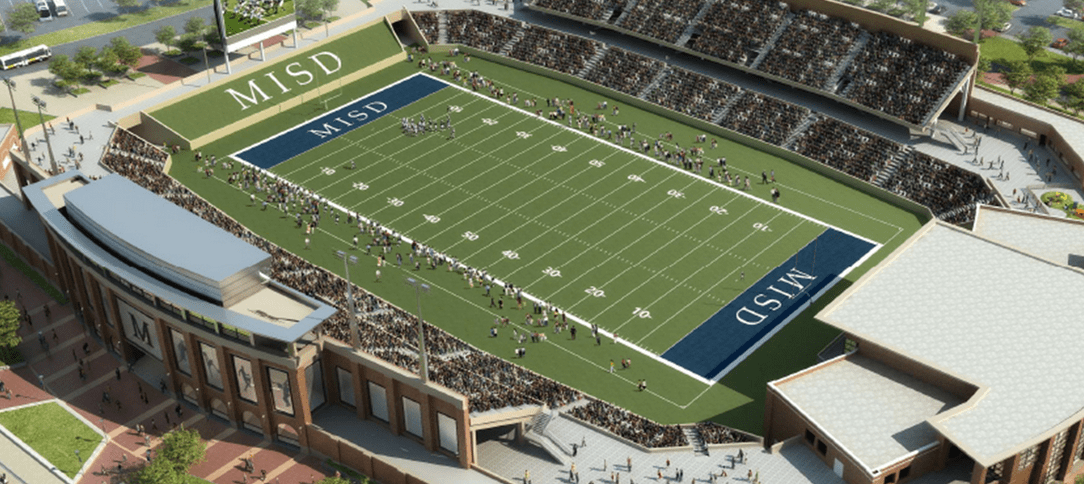The McKinney ISD school board has decided to foist a $220 million proposal on May’s ballot, a plan largely unrelated to improving educational quality. Its most controversial component is a $50 million football stadium that—if built—will be the most expensive of its kind in the United States.
Such wasteful excess has become commonplace in a system that all-too-often glorifies athletic buildings over the needs of teachers and students.
Not only is the proposed stadium expensive, but it resembles a facility more fit for the Dallas Cowboys than high school athletes. When bond proponents were asked at a McKinney Tea Party meeting if they explored more reasonable alternatives, they admitted they did not.
It gets worse. The stadium’s total cost far exceeds what will appear on May’s ballot. Part of the cost would be paid by leftover funds from a previous bond, although voters at the time were not told it would be used on a stadium.
When the cost of land and other expenses are included, the total price tag tops $70 million. And when interest expense is added, its total cost approaches $100 million, or twice what voters will see on the ballot. Approval of this new debt deal will push taxpayer’s total liability near $1 billion.
Voters will not have the option to reject the stadium separate and apart from other unrelated items. Officials have chosen to bury the overpriced boondoggle in a single proposition, bundling it with security enhancements, facility renovations, and the controversial purchase of nearly $10 million in laptop computers.
Voters who oppose the stadium will have to say “no” to the entire proposal, with the “needs” of the district held hostage to the “wants.” Officials undoubtedly fear, that if given the choice on the ballot, voters may reject the unnecessary portions of the plan such as laptops or the stadium.
The proposed stadium location is also sparking outrage and confusion. A retired TxDOT official gave testimony explaining how arterial roads surrounding the site are not capable of handling its traffic demands. And most roads cannot be expanded, even if the location itself was ideal.
Furthermore, the site is inconvenient, located at the southern tip of MISD’s boundary. As a result, citizens are suspicious that its placement has more to do with “economic development” than convenience for parents and students.
It’s worth noting that while McKinney ISD’s tax base is growing every year, its student population is not. Critics argue the $220 million is little more than the government continuing its history of borrowing as much as its tax rate will allow.
While strong arguments can be made for select parts of the bond proposal, proponents are hoping their promise of a 2-cent decrease in MISD’s already maxed out property tax rate will help persuade skeptical voters.
But what MISD officials aren’t telling taxpayers publicly or on the ballot itself, is the tax impact of revisiting the proposal. If the stadium was removed from the proposition, taxpayers could expect a much larger 6 cent decrease in property taxes. And if no more debt were issued, taxpayers would see an estimated 19 cent reduction in their MISD tax rate.
It’s important to remember that low-income Texans, the elderly, and struggling businesses also shoulder the burden of record high property taxes resulting from excessive school bonds.
Taxpayers should demand more of their elected officials. Not only should voters be given the choice of voting on separate propositions on any debt deal, but greater scrutiny should be applied to ensure schools don’t continue to bilk taxpayers at the maximum tax rate simply because they think their coffers are growing.
If MISD voters want either to occur, they must first reject May’s proposition. Due to the way the all-or-nothing proposition was designed, school officials have given taxpayers no other alternative.




